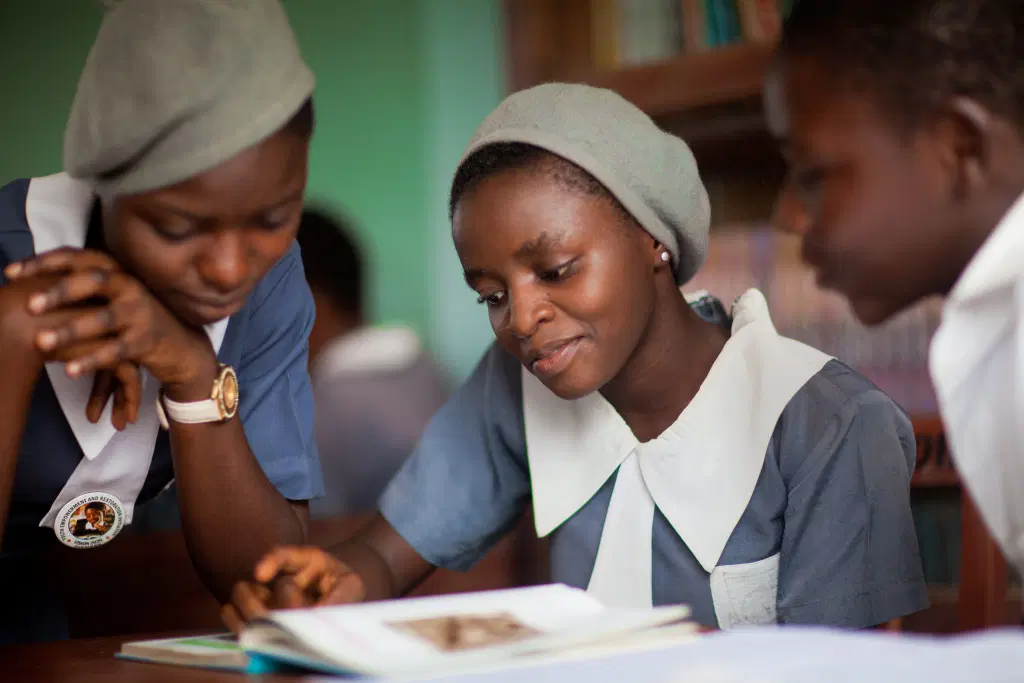Malala Fund and its Civil Society Organization (CSO) partners in Nigeria are urging the Bola Tinubu-led administration to increase the allocation for girls’ education in its annual budget.
Malala Fund made the call in a statement issued on Friday, co-signed by its chief executive, Nabila Aguele, and leaders of its 13 development partners.
Grassroots Parrot reports that the partners included Bridge Connect Africa Initiative, YouthhubAfrica, Invictus Africa, Connected Development, and Sustainable Collective Advocacy for Africa Development Initiative.
Others are Unique Care, Support Foundation, ACE Charity, Center for Advocacy, Transparency and Accountability Initiative, Onelife Initiative, the Inclusion Project, Education as a Vaccine, and Centre for Girls’ Education.
Malala Fund, in the statement, noted that empowering girls is not just a moral imperative but a necessary step towards building a stronger, more equitable society.
READ ALSO: Kano Gov Declares State Of Emergency On Education
The statement said when girls are educated, they are more likely to contribute to the economy, and this, in turn, will boost economic growth and reduce poverty.
“Investing in education is the single most transformative step Nigeria can take to unlock the potential of girls and build a more equitable future.“ Girls in underserved regions, who have the most to gain from education, deserve dedicated resources to remove barriers to learning. The 2025 budget is an opportunity to right this wrong and invest in their future.”
The civil society leaders stated that some states are making significant progress in tackling barriers to education for girls.
Sani Muhammad, executive director of Bridge Connect Africa Initiative and Malala Fund Education Champion, explained that Kano State, for example, allocated 31% of their 2025 budget to education.
READ ALSO: Stakeholders Validate Framework To End Gender Disparity In Kano Education Sector
Muhammad said, “This allocation affirms the efforts of stakeholders and reflects an increased commitment to girls’ education.”
In Oyo state, 21% of their 2025 budget is allocated to education, continuing a trend of increased investment.
However, Bukky Shonibare, the executive director of Invictus Africa and Malala Fund Education Champion, noted the absence of dedicated budget lines for girls’ education.
The 13 civil society leaders who signed the press statement advocate for 12 years of free education for all Nigerian girls.
Malala Fund and its partners called on the federal and state governments to increase the education budget. Allocate at least 15% of the national budget to education, aligning with global standards.
Target funding: Ensure resources reach marginalized students, particularly girls in underserved regions, through dedicated budget lines and targeted interventions.
Increase fiscal accountability: Establish strong mechanisms to ensure resources are used efficiently and budgets are allocated and spent transparently.
READ ALSO: Kano Community Where No Girl Has Finished Secondary School In 300 Years
Align with global standards: Commit to a phased plan to incrementally increase the education budget over the next five years, meeting international standards.
Target state interventions: Adjust funding models to consider population size and unique challenges to ensure equitable distribution of resources to regions most in need.
Implement gender-responsive education budgeting (GREB): Nigeria has made progress using gender analysis for education policies but still needs a cohesive national GREB framework.
They, however, urged the Nigerian government to seize this opportunity to prioritize education in the 2025 budget.
“By doing this, Nigeria can bridge gaps in school enrollment and retention, promote equitable education outcomes, and unlock long-term economic benefits. Girls’ futures—and the nation’s progress—depend on it.”
